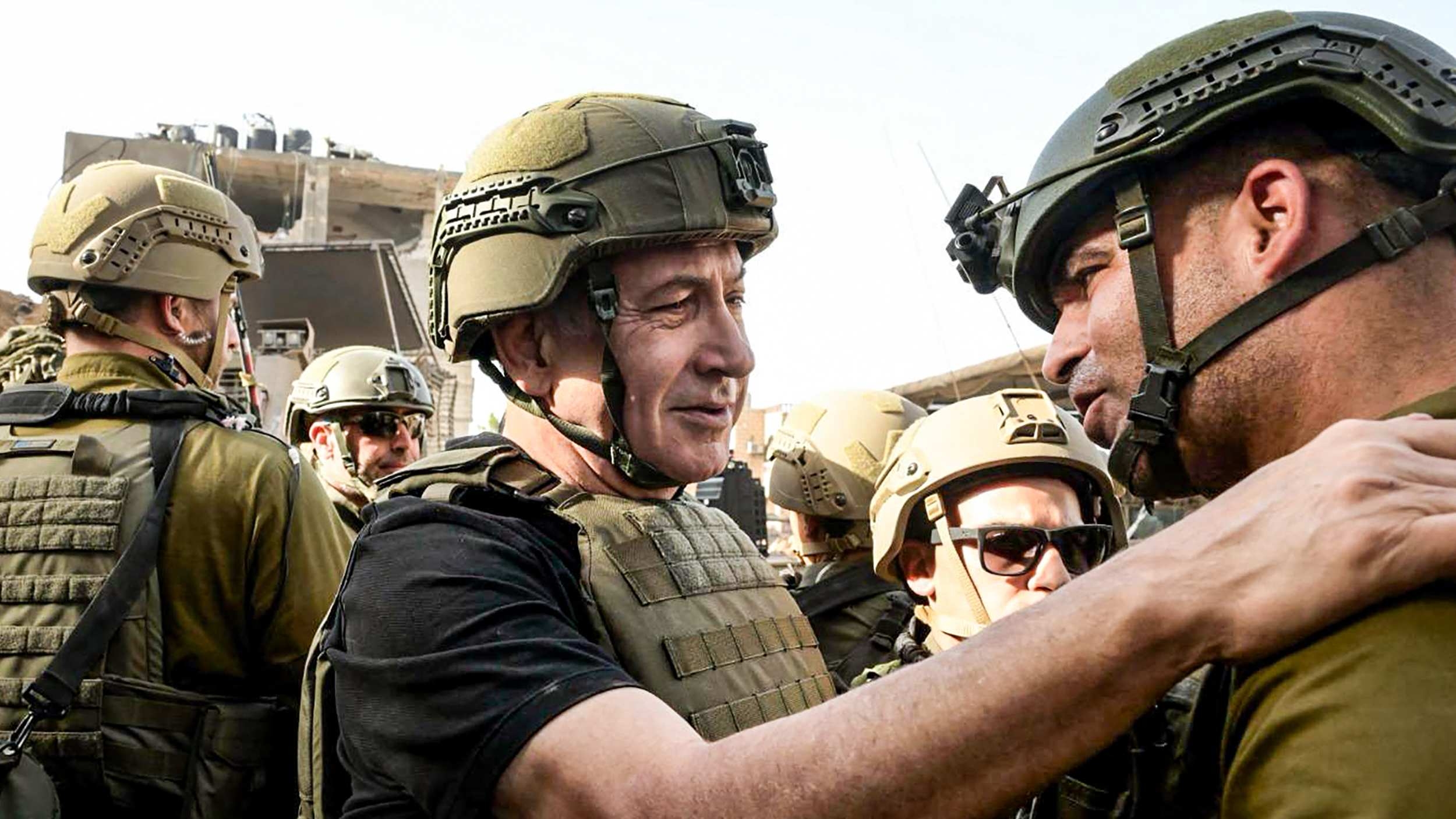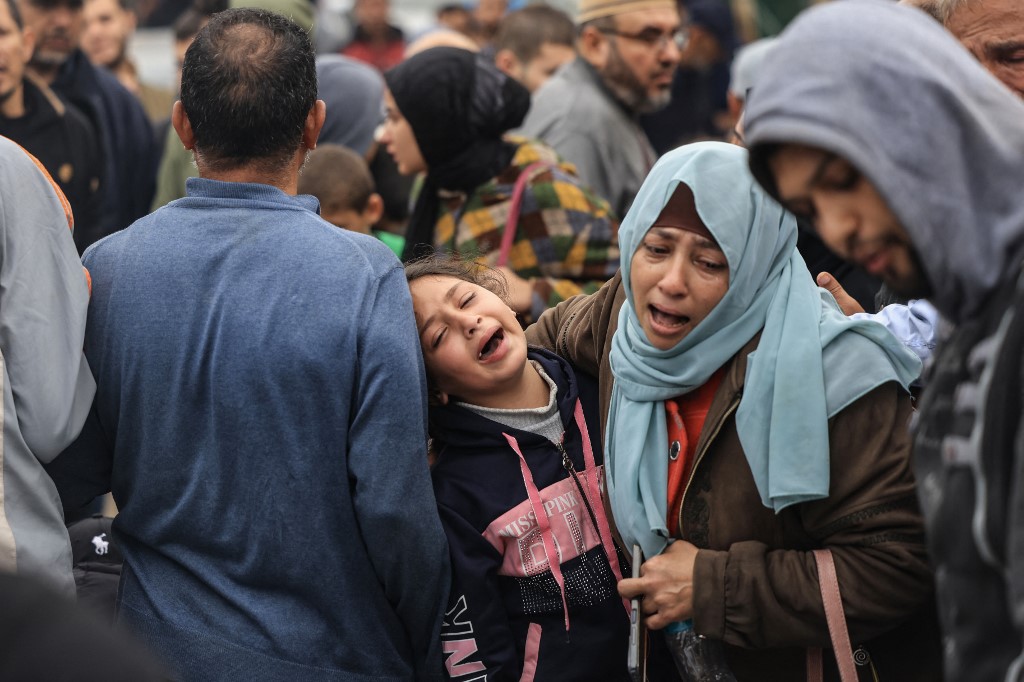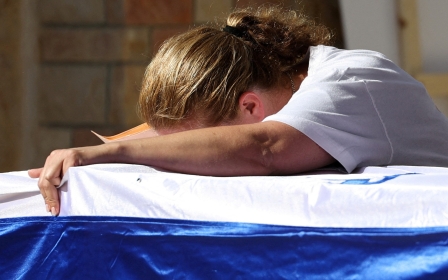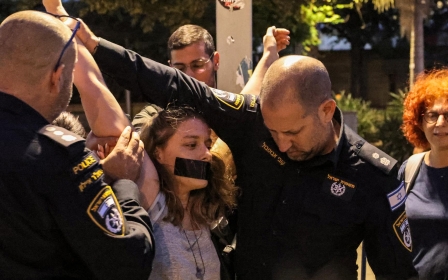Israel-Palestine war: For Netanyahu and his political allies, peace is more dangerous than war

This is a decisive moment in Israel’s war with Hamas. It’s also a hugely dangerous one for both sides.
The resumption of a brutal bombing campaign on the south of Gaza was impelled by an overwhelming feeling in the war cabinet, the media, and among the majority of Israelis that the war should go on, that Hamas should be dealt a final blow.
The Israeli public wants vengeance, and they still do not feel that they have had it.
Faced with the blunt choice of a further exchange of hostages and prisoners and returning to the ground offensive, the war cabinet decisively chose war.
If the war cabinet is a long way from recognising what everyone outside Israel is telling them - that Hamas cannot be fully defeated - there is now a growing new realisation in Israel, maybe even within the army and certainly among commentators, that Hamas is far from being beaten.
New MEE newsletter: Jerusalem Dispatch
Sign up to get the latest insights and analysis on Israel-Palestine, alongside Turkey Unpacked and other MEE newsletters
All the generals, chiefs of staff and media commentators have had to eat their words about Hamas losing control of the north of Gaza, after they saw during the ceasefire Hamas moving freely in Gaza City, releasing hostages that had been held there.
The army yearns for redemption for its massive failure to protect its citizens in the south of Israel. It desperately needs the scalps of Hamas’s leaders. But in moving southwards, it’s going into a complete unknown.
No exit plan
The first part of the ground offensive was limited to an occupation of Gaza City. That part is far from over, but at least during the first phase the army's objectives were more or less clear.
It drove the population south to take over the north. Now their objective is far from clear.
Follow Middle East Eye's live coverage for the latest on the Israel-Palestine war
It seems that the army doesn’t really know the fate of the remaining hostages. They don’t know how strong Hamas is, and how much it has reinforced its positions during the seven-day truce.
They don’t know how long the US will continue to have Israel’s back, bombing an area into which the majority of Gaza’s 2.3m population are now packed.
As they push the population towards the border, the likelihood that Egypt opens it to allow aid and supplies in against Israel's will increases.
Palestinians in Gaza won’t be pushed out, but supplies, and even arms, could enter from Egypt to the Gaza Strip. So in resuming the war, Israel has no short-term strategy, let alone an exit plan.
Domestically the fact that 80 hostages were released safely will lead to mounting pressure by the relatives of the remaining 134 hostages, civilians as well as soldiers.
After the truce broke down, and hostages who came back reported that Israel's bombing put their lives in danger, the pressure from the relatives only mounted.
The most likely scenario is that Israel lurches between periods of war and pauses in the fighting, without being capable of finishing either.
Israel's most hated man
But here Prime Minister Benjamin Netanyahu’s problems have only just started. Today he is probably Israel’s most hated man.
The trauma of 7 October has added a huge new dimension to Netanyahu’s continuing legal woes, as the first prime minister to be indicted for bribery, fraud and breach of trust while in office, and his failed "legal reform" which sent hundreds of thousands of Israelis to protest against him and his right-wing government.
Posters of Netanyahu with the print of a bloody hand over his face have gone up all over Tel Aviv
He is blamed for presiding over the deadliest day in the history of the state. Posters of him with the print of a bloody hand over his face have gone up all over Tel Aviv.
Once the fighting is over, the common political wisdom is that these will be his last days in power, and every other political player in Israel is acting on this assumption.
Netanyahu is a good actor, he tries to act as if everything is normal. But politically he is a dead man walking. Why would this particular turkey be voting for early Thanksgiving? He has every personal incentive to keep the war going for as long as he can.
An election poll carried out on the 49th day of the war revealed a collapse in the vote of the extreme right Religious Zionism party of Bezalel Smotrich, the finance minister.
If an election were held tomorrow, it would fail to win the 3.25 percent minimum needed to enter the Knesset. That’s a drop from the 14 seats it won in a joint run with Itamar Ben Gvir's Otzma Yehudit in the elections in November last year.
The right-wing alliance which captured 64 seats then would crash to 41 seats out of 120, while the opposition “Change” alliance, if it were to be combined with the Palestinian Hadash-Taal alliance, would climb to 79.
It’s a complete about-turn projecting Benny Gantz into power, with his National Unity party quadrupling its seats from 12 to 43.
Why?
The constitutional coup that Netanyuhu's government was trying to mount in depriving the courts of their ultimate power to check the executive has fused in the minds of most Israelis, to a certain extent, with the trauma of the Hamas attack.
The authors of the legal coup are now thought of as responsible for Israel’s damaged unity and, as a result, its damaged security. And this is a sin that cannot be forgiven easily.
We know now that the Israeli army had only two to four battalions along the fence with Gaza, while 32 battalions were stationed in the West Bank, mainly to protect the settlers.
While Ben Gvir is still doing well in the polls, representing the thuggish element of the far right, Smotrich is far more dangerous. He is calculating, a meticulous planner and a real ideologue.
But for both of them, and for the entire religious-messianic right, if Netanyahu's government did fall after a potential ceasefire, it would be much more than a simple political defeat.
Dreams of a new Nakba
The religious right waited decades for a full-scale war on the Palestinians which would allow Israel to expel numbers comparable to what happened in 1948.
They knew they could not fulfil their dreams of full sovereignty from the River Jordan to the Mediterranean Sea without dealing the Palestinian majority a decisive demographic blow.
Yes, a lot of the spirit of Ben Gvir and Smotrich has gone deep into Israeli discourse. Just remember the number of Israeli politicians in Likud who have openly called for another Nakba (Catastrophe), an event which Israel spent decades denying ever took place.
But if the war ends without a new Nakba, their dream will remain unfulfilled and they know this. Ben Gvir already said:” No war, no government.”
A permanent ceasefire would be the end of the government. It is clear that the current government would not survive a deal with Hamas
In other words, a permanent ceasefire would be the end of the government. It is clear that the current government would not survive a deal with Hamas, in which all Palestinian prisoners were released in exchange for all the hostages.
No Israeli right-wing leader, and even the wounded pride of the army, could stomach an end of the war in which Mohammed Deif or Yahya Sinwar emerged from the tunnel waving a Palestinian flag in victory. Or Marwan Barghouti being released from prison.
What made the current government so dangerous was the combination of the secular right wing, like Netanyahu, with the extreme ideology of Smotrich.
But today, the authors of the failed legal coup - Simcha Rothman, the head of the Constitution, Law and Justice Committee in parliament from Smotrich's party, and Justice Minister Yariv Levin from Netanyahu's Likud party - dare not show their faces, because they are the ones held responsible for dismembering the state.
They waited a long time for their moment in history. They are not going to let their life-long dream slip from their grasp that easily. A return to Gantz and talk of a two-state solution? Over their dead bodies, and the bodies of thousands of Palestinians and Israelis.
This doesn't mean it won't happen in the end, and that the war will go on for ever. It only explains how high are the stakes for Netanyahu and his partners.
And this is why this moment in the war is so dangerous.
This article is available in French on Middle East Eye French edition.
Middle East Eye delivers independent and unrivalled coverage and analysis of the Middle East, North Africa and beyond. To learn more about republishing this content and the associated fees, please fill out this form. More about MEE can be found here.






